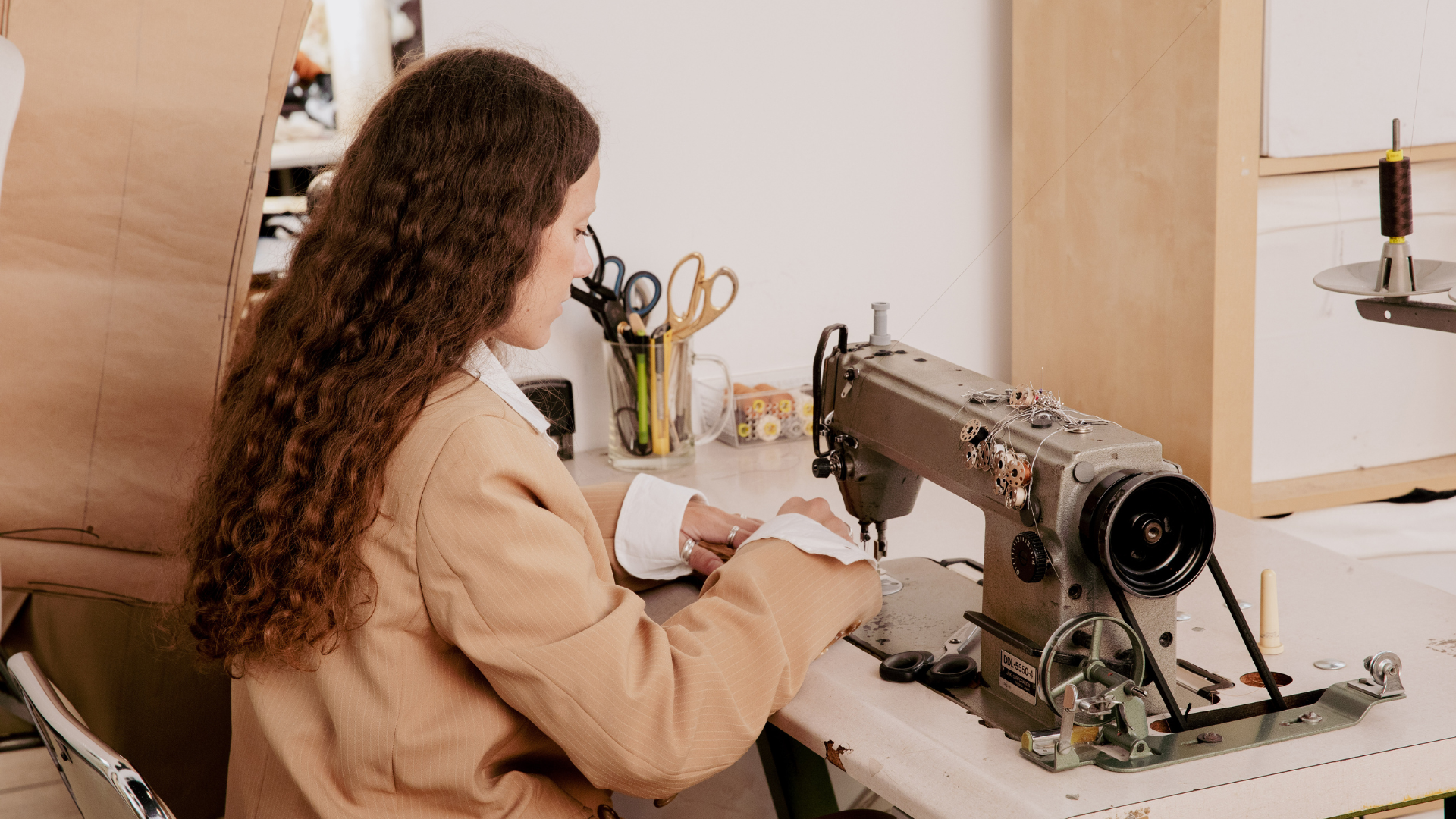There is high demand for skilled sewing machinists, and it doesn’t take much experience to get started in apparel production. All you need is access to industrial sewing machines, fabrics to practice with and entry-level knowledge of a few essential skills.
How to Get Sewing Machinist Skills
Sewing machinist professionals and their employers often find it difficult to locate the training resources to acquire entry-level skills. Beginning employees can sometimes learn on the job, but employers often cannot provide formal training to inexperienced sewers.
However, a handful of targeted programs are available to develop these beginner skills, such as ASU CareerCatalyst. ASU offers a new program, Transforming Fashion Manufacturing, designed in partnership with the School of Art and Herberger Institute for Design and the Arts. It offers self-paced online courses to help develop practical skills in industrial sewing and digital technical design.
In as few as one skills-focused course, you can quickly get up to speed and ready for entry into the fashion apparel production industry. Both employers and those interested in becoming professional apparel production machinists benefit from the hands-on training available in the Transforming Fashion Manufacturing program.
Skill #1 Understand Fabrics
In the garment making craft, fabric is your raw material. You want to recognize and identify the different types of fabric, and know how to work with them properly. Before you apply for a job as a sewing machinist, familiarize yourself with fabric composition types.
“Knits and wovens. They are your basic fabrics, and they react completely differently,” says Tabitha Holmes, owner of House of Holmes, a cuts and sewing manufacturer in Mesa, Arizona. “Knits are comfortable and soft. Moveable and bendable. They adhere to your body and move with it. They are the comfort food of fabrics,” she jokes. “But woven fabrics can be more structured, more angular. They serve the purpose of strengthening the form and function of your clothing.”
Soft or structured, the more familiar you are with fabrics, the better you’ll be at sewing them together.
Skill #2 Learn the Major Seam Types
Seams join two or more fabrics together to create a garment. You can’t construct clothing without them! “But you don’t want to use the wrong stitch for the wrong fabric,” Holmes warns. “Especially for knits, if you use the wrong kind of stitch, your garment will fall apart.”
They are classified by their type (bound, plain, flat, lapped) and position in the finished garment (inseam, side seam, center back seam). If you can read cross-section diagrams of seam types, and show you know when to use a particular type and why, you’re on your way to becoming a professional apparel production machinist.
“A good sewing machinist knows not only the major seam types, but how to use a particular seam join and why,” Holmes says. “There’s an element of engineering to it, but it’s the key to making a good quality garment that lasts.”
Skill #3 Know How Industrial Sewing Machines Work
Whether you already know your way around a home sewing machine or not, if you have an interest in learning industry machines, this course is for you. To step up to professional garment making, you’ll want to have a good working knowledge of industrial machines and what they do.
“Once you try an industrial machine you are not going to want to go back to a home machine,” Holmes says. “They go so fast and they’re so accurate! You can become very spoiled learning how to work an industrial machine.”
But it takes practice, Holmes advises. “Unless you sit and practice over and over again, you can’t become proficient with it.”
Get acquainted with basic machine operation and maintenance processes. The more familiar you are, the better you will be able to practice and refine your skills to meet industry standards for speed and efficiency, and the more valuable you will become as an entry-level sewing machinist.

Up Skilling for fashion manufacturing professionals at Arizona State University
Through ASU CareerCatalyst, Arizona State University partners with companies across industries to provide skills education and knowledge acquisition programs that accelerate growth through workforce development, benefiting both employees and the organizations they serve.
As a top-tier university for innovation, ASU applies its unparalleled core of knowledge to partners and learners in critical areas ranging from foundational professional skills, to immersive leadership experiences, to advanced technical education in emerging fields. Through ASU CareerCatalyst, ASU develops world-class workforce education solutions that align with business priorities and strategies and empower all learners to thrive in the future of work at every stage of their careers.
Connect with ASU to learn how you can develop the fashion manufacturing skills you need to enter into the clothing manufacturing industry.






